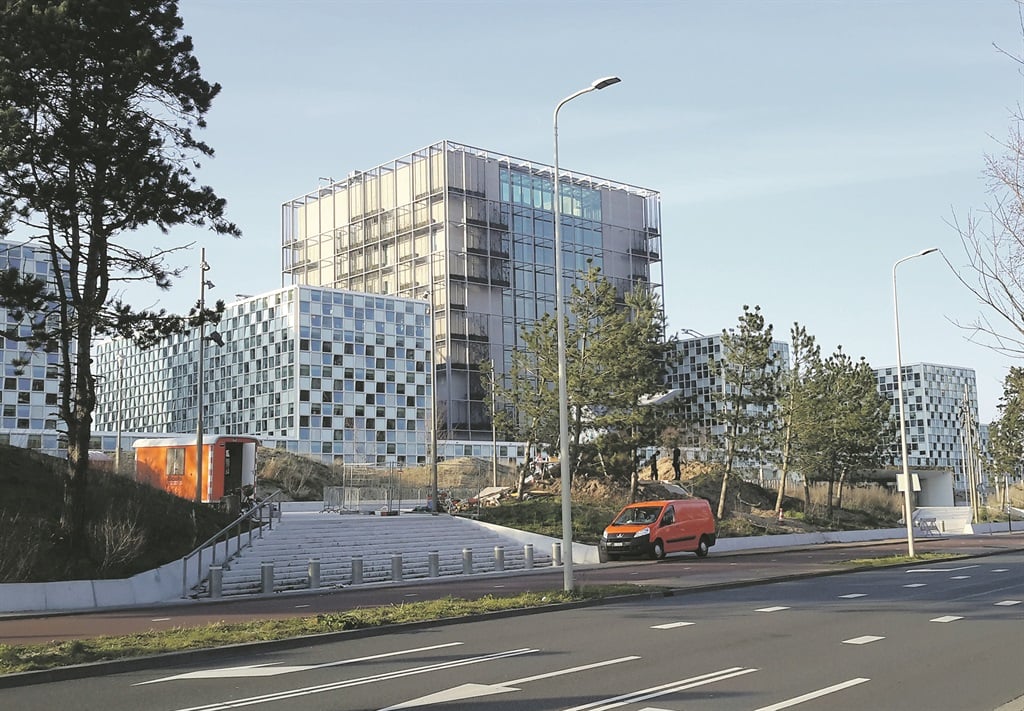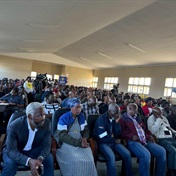
Even if the country decides to withdraw from the ICC, it will still face the consequences of failing to arrest President Omar al-Bashir last year, writes Alicestine October
South Africa would not be absolved from dealing with the consequences following its decision not to arrest Sudan’s President Omar al-Bashir, even if it was to act on its threat to withdraw from the International Criminal Court (ICC), said ICC chief prosecutor Fatou Bensouda in an interview from The Hague, Netherlands.
Bensouda acknowledged that the decision to withdraw from the ICC was a sovereign state’s prerogative. However, she argued that while African states should be commended for taking the lead in opting for the rule of law, they should also take their obligations to the Rome Statute seriously.
She said the act of withdrawing from the system would not absolve South Africa from its responsibility because pre-existing proceedings would continue.
“All the actions and the legal status that arose from them being a state party will continue … The withdrawal can only take effect one year after they have decided to withdraw.”
The ICC is governed by an Assembly of States Parties, which is made up of the states that are party to the Rome Statute. As of March this year, 124 states were parties to the Statute of the Court, including all South American countries, nearly all of Europe, most of Oceania and roughly half of Africa (34 states). At least 31 more countries have signed but not ratified the Rome Statute.
The law of treaties obliges these states to refrain from “acts which would defeat the object and purpose” of the treaty until they declare they do not intend to become a party to the treaty. At least 41 UN member states, including
China and India, have neither signed nor acceded to the Rome Statute.
So far, at least three signatory states – Israel, Sudan and the US – have informed the UN secretary-general that they no longer intend to become states parties and, as such, have no legal obligations arising from their former representatives’ signature of the statute.
“We sincerely hope we do not get to the stage where South Africa withdraws from the Rome Statute,” she said, adding that South Africa was regarded as an important state party.
“We look forward to working with South Africa to make sure the rule of law in terms of international law is maintained, especially in a country like South Africa.”
In the Al-Bashir case, there was an obligation on South Africa’s part to arrest him.
“This obligation is a serious one that trumps any other,” she said.
Al-Bashir managed to escape arrest when he visited South Africa last year. The Supreme Court of Appeal earlier this year found that government had acted unlawfully by failing to arrest him. He has been charged with alleged human rights abuses, genocide and war crimes in Sudan’s Darfur region. The first warrant of arrest was issued against him in March 2009 and a second one was issued in 2010 following a request by the UN Security Council.
Bensouda said the court did not have its own unit to ensure enforcement and was dependent on the police of all the states parties to arrest suspects and hand them over to the ICC.
“So there is still possibility and hope that eventually Al-Bashir will find himself before the ICC,” she said.
However, Bensouda hailed South Africa’s Supreme Court of Appeal decision against President Jacob Zuma’s administration, saying it was an important one regarding the clarification of the states parties’ obligations.
“It in effect means al-Bashir cannot set foot in South Africa again. We hope this sends a message to other state parties that those obligations should be respected – they are obliged to enforce the court’s decisions and arrest any fugitive within their borders.”
South Africa was obliged to update the court on the latest developments regarding the Supreme Court of Appeal decision and explain why it had not arrested Al-Bashir. This needed to be done as soon as possible, she said.
“There may be proceedings instituted against South Africa that could mean South Africa could be found to be noncompliant.”
The ICC has been accused, particularly by African leaders, of bias and of being a tool of Western imperialism – only punishing leaders from small, weak states, while ignoring crimes committed by richer and more powerful states.
The prosecution of Kenya’s Deputy President, William Ruto, and President Uhuru Kenyatta (both charged before coming into office) led to the Kenyan Parliament passing a motion calling for Kenya’s withdrawal from the ICC, and the country called on the other 34 African states party to the ICC to withdraw their support, an issue that was discussed at a special African Union summit in October 2013.
The summit did not endorse the withdrawal proposal, but concluded that serving heads of state should not be put on trial and that the Kenyan cases should be deferred.
Bensouda said the argument that African leaders were targeted was a complete misconception and was “based on wrong facts”.
The reason eight of the nine cases currently on the court roll involved African states was because African states were taking a leadership role in approaching the court where there was an unwillingness to prosecute.
“Five of the eight Africa cases were pursued at the request of African states,” said Bensouda.
“That is how we came to be in Africa. It is not by design and it is not because the prosecutor decided now we are only going to focus on Africa … far from it.”
Bensouda, herself an African and former minister of justice in Gambia, has been working at the ICC since 2004. In 2012, she was appointed chief prosecutor.
Seemingly used to criticism, she said: “I always say Africa should be commended because it is choosing the rule of law instead of reverting to conflict. We are also working outside of Africa. Recently, we also opened an investigation into Georgia.”
This investigation relates to the conflict in South Ossetia, a breakaway region of Georgia where 113 civilians were killed. Other preliminary investigations are under way in the Ukraine, Colombia, Palestine, Afghanistan and into the conduct of UK forces in Iraq.
Despite criticism against the court, which was established in 1998, its credibility remained intact, Bensouda said. “The court is doing what it is supposed to be doing. As a court, we do preliminary investigations and do them in the most independent and impartial way.
“We cannot help when people politicise the actions of the court for their own political ends,” she said.
October was Media24’s journalist in residence at Zuid-Afrikahuis in Amsterdam, Netherlands, in March and April




 Publications
Publications
 Partners
Partners








